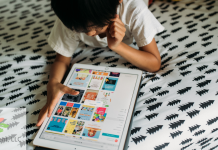I’m the first to admit, I’m very competitive. I have always loved games and love to win. For better or worse, I’m competitive by nature.
This competitive streak sometimes becomes problematic, especially when it comes to parenting. There is such an urge to compare kids, as though their ability to walk at an early age is somehow a reflection on my parenting (clearly it’s not), or that it means they are going to be an Olympic athlete (there is no research to support this). This pressure to have your child perform well is exacerbated by social media, where everyone’s kids seem to be achieving one tremendous feat after another.
For me, this is especially the case with reading. Reading is such an important skill, and it is linked to so many other outcomes (e.g. later school achievement, high school graduation rates…). So, it makes me want to hurry along this skill so that my child can achieve greatness. When I hear that other kids started reading at four years old, it makes me panic.
The problem is, learning to read doesn’t happen overnight, and it doesn’t happen for all kids at the same rate. Many early childhood programs know this, so they don’t even put much emphasis on reading until kids are around six or seven years old. As long as they are getting good exposure to reading and making progress, at their own pace, it doesn’t matter if other kids have learned to read first. What matters is that they are making progress and enjoying the process.
So what am I doing instead?
• I appreciate my child’s skills where they are.
• I encourage them by pointing out how much progress they have made.
• I remind them (and myself) that learning takes time and work, just like building muscles or learning to ride a bike.
• I keep reading to my child every night, so they can continue to enjoy reading.
• I encourage my child to keep trying to read, even if they get it wrong, they are still learning.
• I cut myself some slack, and remember that kids all develop at different rates.
• I listen to my child’s teacher and take the help we need, when we need it, but don’t fret about not being the first to read.
Whether they start reading at four years old or seven years old, what matters more is that they are able to build the skill and keep the joy for reading and learning alive.
What do you do to minimize comparisons between kids?
















